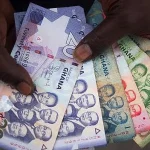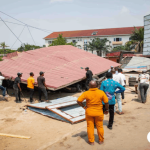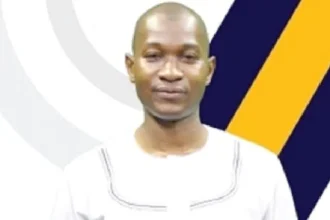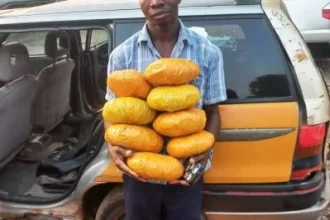Poliovirus has been detected in water samples taken from drains in the Northern Region.
The Northern Regional Health Directorate discovered the virus in drains at Kobilmagu, Nyanshegu, Sagnerigu Municipality and the Tamale Metropolis during routine surveillance.
The virus was later confirmed by the Noguchi Memorial Center for Medical Research.
Polio or poliomyelitis is a disabling and life-threatening disease caused by the poliovirus.
The virus spreads from person to person and can infect a person’s spinal cord, causing paralysis.
According to health officials, no child in the area has contracted the virus.
“So the good thing is that, currently, it’s not like any child or any person has been affected with the poliovirus. We have identified its presence in the environment, and we want to take immediate steps to investigate and protect the children from getting exposed to it,” the Deputy Northern Regional Director in charge of Public Health, Dr. Hilarious Abiwu, said.
He, however, warned that children in the area were at a higher risk of catching the virus.
“We are going to be visiting the communities, look at most of the children within that environment, take samples from them and take them to the lab to see whether children within that environment have had contact with the virus. We will also take a look at children under five, particularly children two years and younger, to see whether they have been fully vaccinated,” he told Citi FM.
Allaying the fears of the public, Dr. Abiwu said “The level of protection the children have will depend on their vaccination status, so that if we have children within those communities who have not been fully vaccinated, then we can intervene by organizing mass immunization campaigns to make sure that, most of the children in these environments get updated in terms of their vaccination so that we can protect them.
In 2019, Ghana’s decade-long polio-free status came to a halt. The country awoke to news of an outbreak of circulating vaccine-derived poliovirus type 2 (cVDPV2), and Ghana’s Ministry of Health declared a public health emergency of national concern.
WHO immediately swung into action, liaised with the Ghana Health Service (GHS), and initiated an investigation as per International Health Regulation (2005). WHO’s Country Office (WCO) oriented the investigation team on various guidelines, prepared risk assessments and presented this assessment to Global Polio Eradication Initiative partners (GEPI) within 72 hours of the confirmation of the outbreak.
The assessment covered critical factors that influenced the type and scope of response and allowed GPEI to recommend appropriate response actions.
Between December 2019 to February 2020, WHO—in partnership with UNICEF, GAVI, Ministry of Health (MoH) and the GHS—initiated Polio Supplementary Immunization Activities (SIA) to protect 4.5 million at-risk children across eight regions in Ghana.















